What is Penicillin Soup?
Penicillin Soup, commonly referred to in various cultures as Jewish Penicillin, Italian Penicillin, or Polish Rosół, is essentially a chicken noodle soup renowned for its comforting and healing properties. The term “Penicillin” in its name is a nod to its reputation for helping alleviate symptoms of colds and flu, similar to the way the antibiotic penicillin is known for its healing properties.
Key Takeaways
- Penicillin Soup, a term often used interchangeably for comforting chicken noodle soups, has deep historical roots.
- Variants like Jewish Penicillin, Italian Penicillin, and Polish Rosol highlight its cultural significance.
- Recognized for its healing properties and nutritious benefits.
Table of Contents
- Historical Background and Origin
- Cultural Significance of Penicillin Soup
- Nutritional and Health Benefits
- Variations and Adaptations
- Penicillin Soup in Polish Cuisine (Rosol)
- Recipe Variations and Tips
- Serving and Storing Polish Penicillin Soup
- Top 10 Frequently Asked Questions
Historical Background and Origin
The origins of this Soup, akin to chicken noodle soup, transcend time and cultures. Records hint at its genesis in ancient China, possibly dating back to the Eastern Han period. As it traversed continents, from Asia to Europe, the soup adapted to local tastes. Notably, Jewish communities, through their migrations, played a crucial role in popularizing this soup, hence the moniker “Jewish Penicillin” due to its perceived healing prowess.
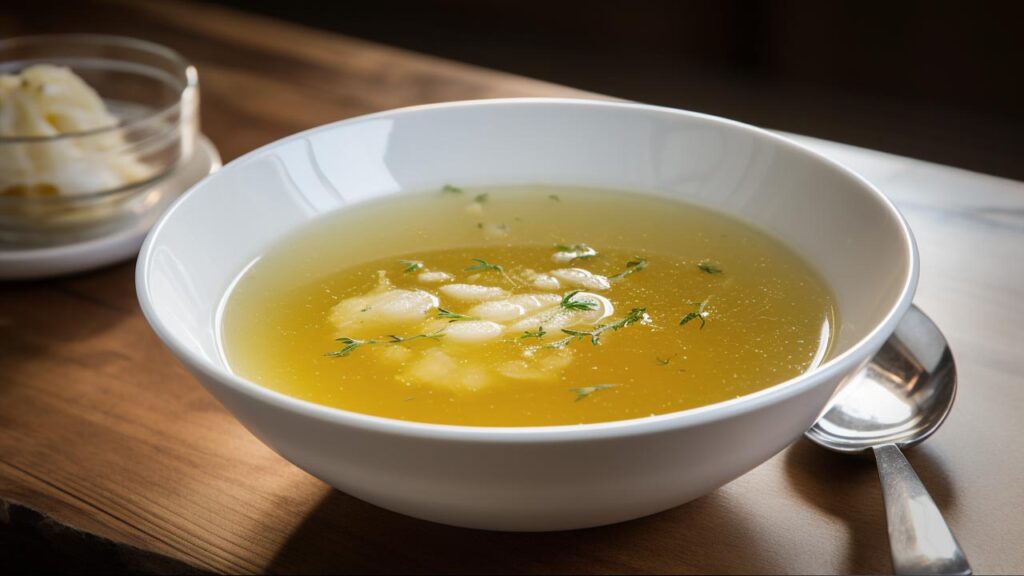
Cultural Significance of Penicillin Soup
Penicillin Soup transcends mere sustenance, embodying comfort and tradition. Across the globe, it serves as a symbol of solace, particularly during cold nights or recovery from illness. Its varied cultural interpretations, from the aromatic Asian versions to the hearty European and the zesty Latin American twists, reflect a rich tapestry of culinary diversity.
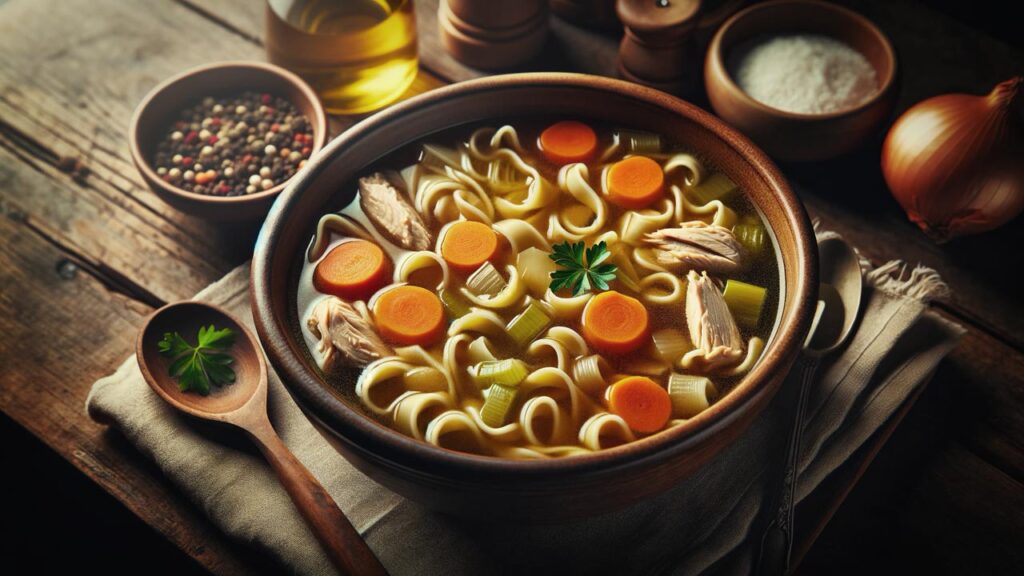
Nutritional and Health Benefits
Penicillin Soup is renowned for its potential health benefits, especially in alleviating symptoms of upper respiratory tract infections. The combination of chicken, vegetables, and broth may foster anti-inflammatory responses, easing congestion and discomfort. Essential nutrients from its core ingredients, such as proteins from chicken and vitamins from vegetables, further augment its restorative reputation.
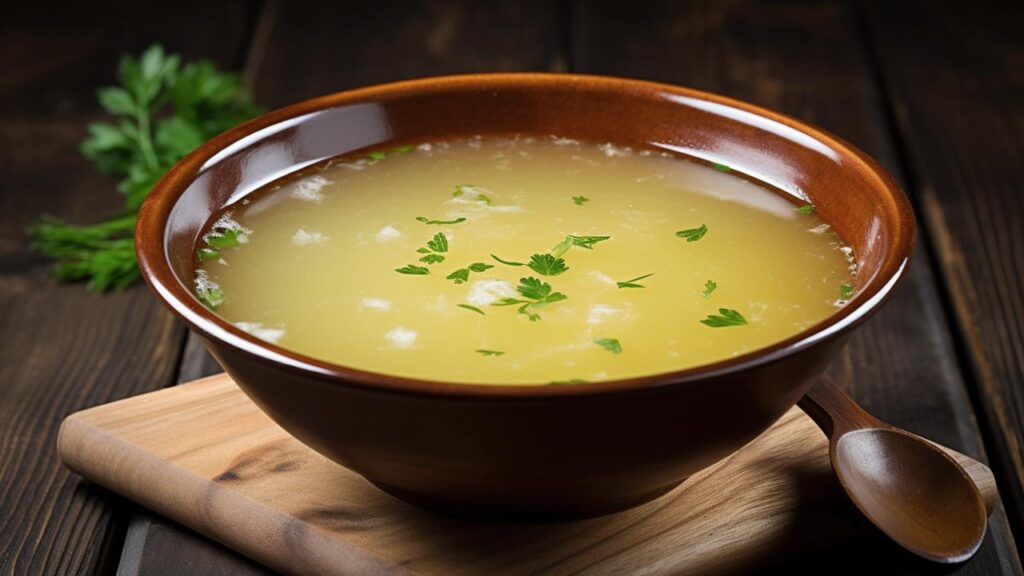
Variations and Adaptations
The classic version of this Soup is simple yet timeless, featuring chicken, broth, noodles, and vegetables. Modern adaptations have introduced diverse ingredients and preparations, reflecting evolving tastes and dietary preferences. From gluten-free options to the incorporation of exotic spices, these modern twists cater to a wide range of palates.
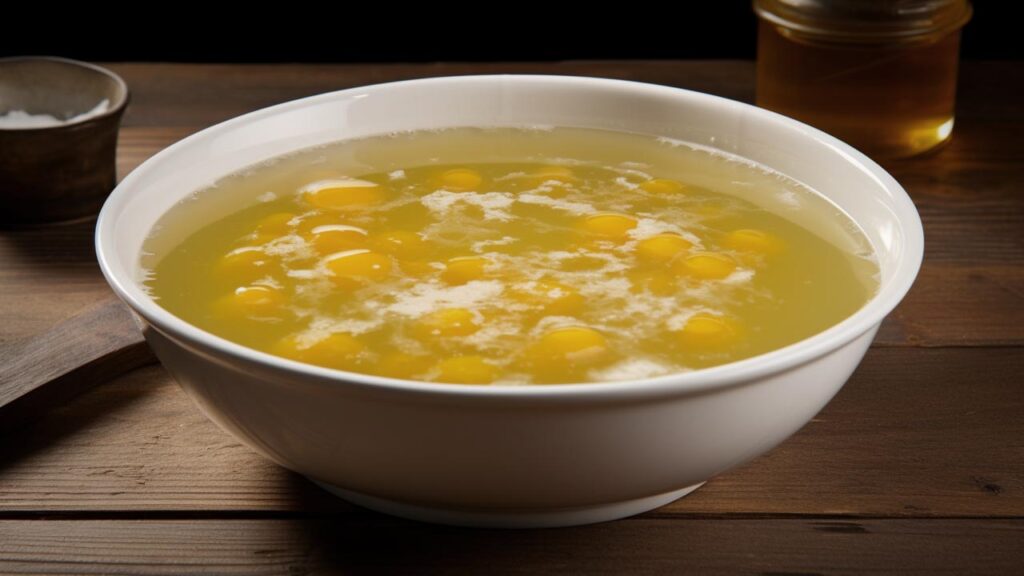
Penicillin Soup in Polish Cuisine (‘Rosol’)
Polish Penicillin Soup, known as “Rosol,” is a clear chicken broth cherished for its restorative properties. Rooted in ancient Poland, Rosol is a symbol of health and culinary heritage, often served at weddings and as a comfort food during illness. Its preparation, involving simmering chicken with root vegetables and spices, results in a therapeutic and rich flavor.
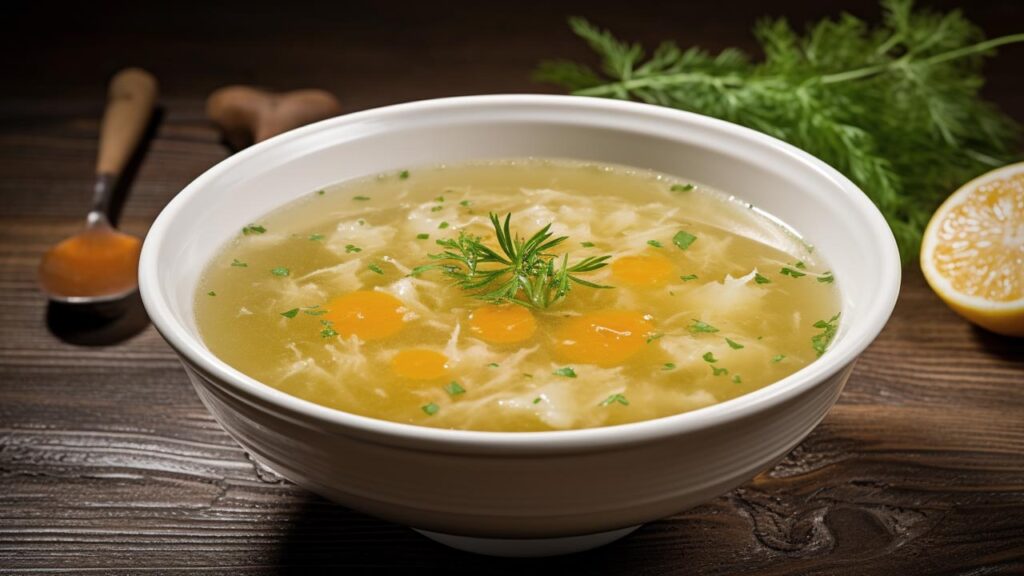
Recipe Variations and Tips
Rosol is versatile, allowing for adaptations like beef or seafood Rosol . Key to its preparation are the harmony of flavors from ingredients like tender chicken, vegetables, and herbs. Adding components like garlic or mushrooms enhances its earthiness, while garnishing with dill or lemon zest can elevate the taste.
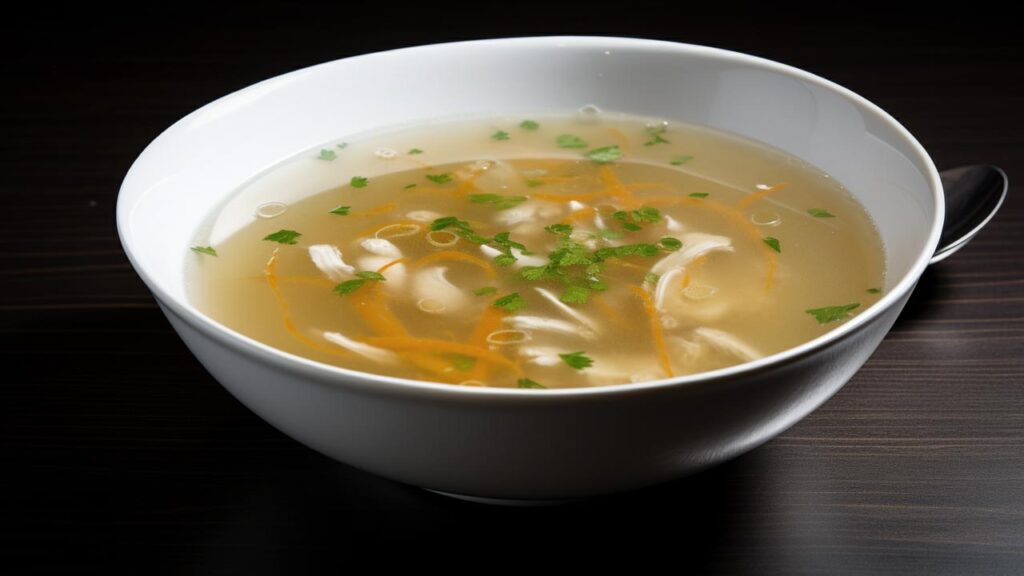
Serving and Storing Polish Penicillin Soup
Serve Rosol hot, typically over freshly cooked noodles. Garnishing with parsley and pairing with rye bread can complement its savory broth. For storage, Rosol can be refrigerated for 3-4 days or frozen for longer periods. Proper thawing and reheating are crucial for maintaining its texture and flavor.

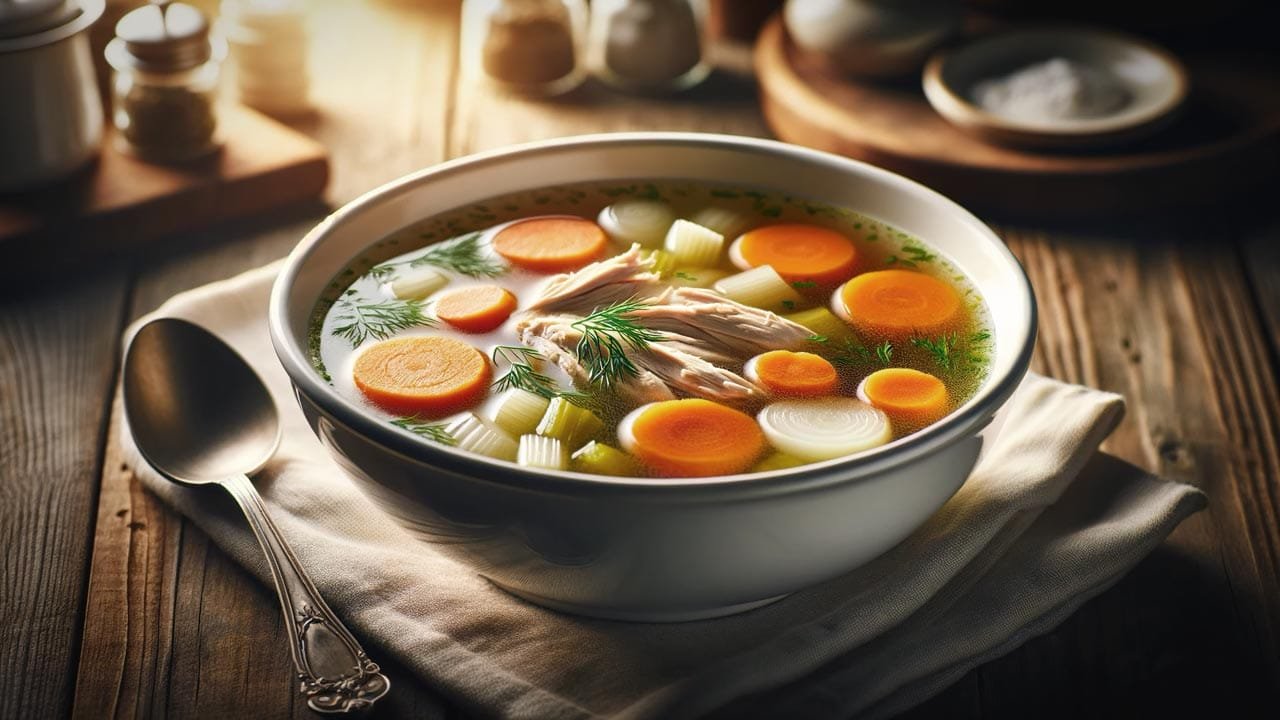





Leave A Comment